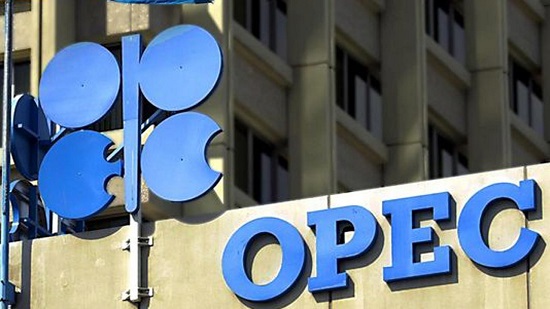This post has already been read 2443 times!
•Tension eases as S’Arabia speaks to Iraq, Nigeria
The Organisation of Petroleum Exporting Countries (OPEC) has predicted that the demand for crude oil will rise by 25 per cent in 2021 to average 29.8 million barrels per day (MMbpd), higher than the 2019 demand level.
Tension in the oil market has also eased as Saudi Arabia commended Iraq for implementing almost all its pledged oil-production cuts, while Nigeria has told the kingdom that it was committed to hitting its target.
Nigeria and Iraq had come under fire from Saudi Arabia for over-production.
OPEC, in its Monthly Oil Market Report for July 2020, said the estimated sharp rebound in demand for next year would surpass levels seen before the COVID-19 pandemic, as rival producers struggle to revive output.
According to the report, while the increase is partly driven by a recovery in global oil demand as economic growth resumes, an even bigger factor is the misfortune of OPEC’s competitors.
The OPEC report said after slumping 7.4 per cent this year, the United States will see only limited production growth in 2021.
However, OPEC and its allies are cutting production to clear the glut left behind by the COVID-19 crisis and prop up prices. The cartel said it implemented more than 100 per cent of the cutbacks pledged in June.
The OPEC+ alliance, which includes non-members such as Russia, is expected to announce at a meeting today that it will phase out some of the curbs from next month.
Under the terms of its agreement, the cuts taper from the current 9.6 million barrels a day, roughly 10 per cent of global supply, to 7.7 million a day in August.
However, in its first detailed assessment of the market in 2021, OPEC said world oil demand would rebound by seven million barrels a day, or 7.7 per cent, next year to average 97.72 million a day.
However, that is still below the levels seen last year or in 2018, and the growth hinges on the containment of the pandemic and a recovery in the hospitality and travel sectors.
The organisation lifted estimates for demand in 2020 very slightly, by 100,000 barrels a day, projecting that consumption remains on track for a record annual slump of 8.95 million barrels a day.
For the improvement in the group’s fortunes next year, a more important driver is the suffering of its rivals.
The report stated that non-OPEC supply was set to plunge by 3.26 million barrels a day in 2020, and will rise by only 920,000 barrels a day the following year.
It could represent a period of breathing space for an organisation that saw its market share eroded for much of the last decade by American shale drillers.
The oil cartel said it was committed to supply restraint, which has helped prices more than double from the lows hit in late April, to current levels of about $42 a barrel in London.
Last month, the cartel slashed output by a further 1.89 million barrels a day to 22.27 million barrels a day, as Saudi Arabia followed through on promises of extra cutbacks and other members stepped up their compliance with pledged reductions.
Oil Tensions Ease as S’Arabia Speaks to Iraq, Nigeria
Meanwhile, signs that disputes among OPEC and its allies over cheating of quotas are being resolved have emerged as Saudi Arabia commended Iraq for implementing almost all its pledged oil-production cuts, while Nigeria has told the kingdom it was committed to implementing 100 per cent compliance.
Saudi Energy Minister, Prince Abdulaziz bin Salman, spoke to his Iraqi counterpart, Ihsan Abdul Jabbar, according to a joint statement from their offices on Monday.
The prince said he was satisfied with Baghdad’s improved compliance in June.
Salman also had a phone call with Nigeria’s Minister of State for Petroleum, Mr. Timipre Sylva.
The Saudi minister stressed the importance of all countries adhering to their commitments to cut oil output, while Sylva said Nigeria would compensate until September for producing more than its quota allowed in May and June, according to a separate statement.
Iraq, Nigeria and other nations such as Angola came under fire from Saudi Arabia and Russia, the effective leaders of the OPEC+ alliance, for over-production.
OPEC and its allies agreed in April to cut supply by almost 10 million barrels a day to prop up prices in the face of the coronavirus pandemic.
OPEC+ will hold a video conference today to review the deal.



